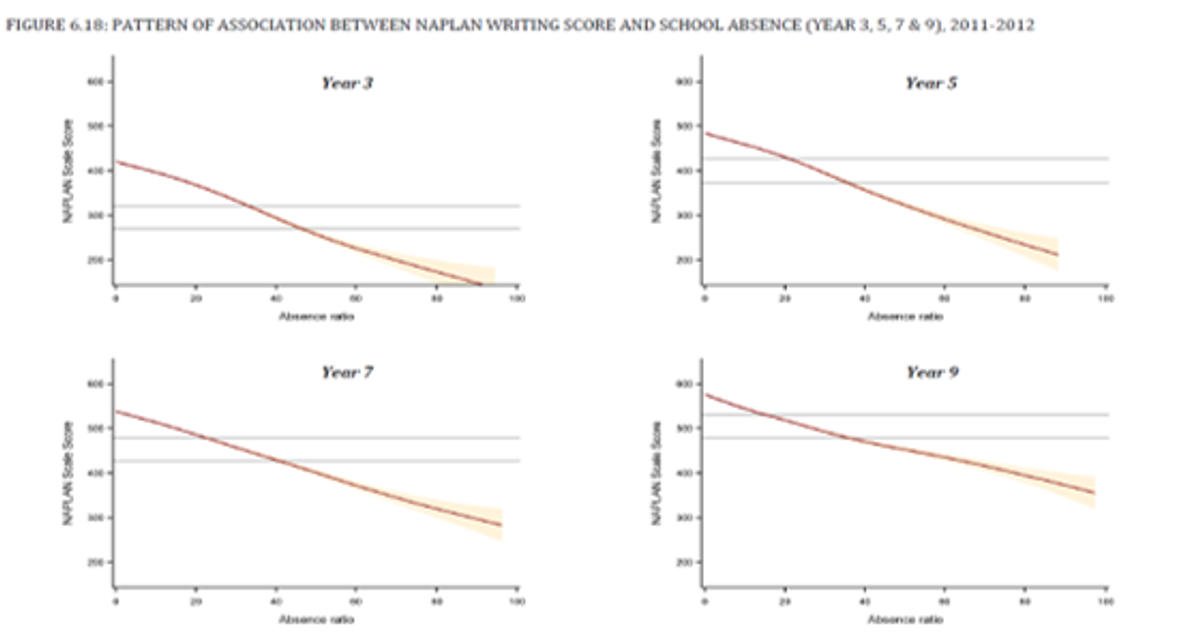DEPUTY PRINCIPAL REPORT
Teaching, Learning and Innovation

DEPUTY PRINCIPAL REPORT
Teaching, Learning and Innovation
Every Day Counts
Compulsory school attendance in Australia arose from the child labour laws of the late 1870’s, with then newly legislated expectations that all children must attend school. It seems the options prior had been the coal mines or the books, with the former favoured over the latter!
Thus, much of what I am going to write about for this article seems a truism—the more a student attends school the greater their performance not just at school but in life. This fact is upheld by a wealth of research across a very long timeframe. We need to consider the long term effects of absence on our children. A student who misses one day a fortnight every term will miss 260 days of school over their 13 years of education. This equates to 52 weeks of school missed, or one whole year and a term. When viewed in this light it becomes clear that it is hardly surprising that the research supports the common sense idea that every day counts.
What the Research Shows
Longitudinal research makes it clear that being absent from school has a significant impact on your child’s learning. A study from 2014 found that:
“Apart from the effects of parenting on the development of children, there is probably no other greater force applied to alter the course of their development than that of education.” (Zubrik, 2014, p. 32)
The greatest impact was on writing, as seen in the graphs below:


Source: ibid
What the Legislation Requires
As stated by NSW Educational Standards Authority:
‘Regular attendance at school is essential for students to achieve quality life outcomes. Schools, in partnership with parents, are responsible for promoting the regular attendance of students’.
Parents of children from Kindergarten to Year 12 must ensure their children attend school every day. On occasion, your child may need to be absent from school. Justified reasons for student absences may include:
We Need Your Support
The Riverina Anglican College as a learning community works in partnership with parents to maximise attendance. The college processes for absence are:
There are several risk factors that increase the likelihood of regular absence. Absence after weekend sporting events, absence after travel, absence for family holidays during term time—these all contribute to vital learning opportunities being missed. Family holidays in particular during term are not considered an acceptable reason for absence, for reasons stated above.
The core message to our children needs to be that every day counts. Whether absence is caused by illness, family holidays, school endorsed sporting, academic or cultural events, feeling tired from attending a concert… the list goes on, but the end result is the same. If you want your child to value their education then it is vital you reinforce this message and rest assured the college will as well.
The other core message for our students also concerns the importance of catching up on return to school. With most learning being on Google Classroom it is in some ways easier than ever to catch up, but of course what has been missed remains—the important conversations and shared understanding built by class discussion. Encouraging students to be proactive in seeking advice prior on learning missed is a vital component of maintaining learning momentum, as is catching up on learning as soon as possible.
As always, please be in touch if you have any queries or concerns. Anthony.Heffer@trac.nsw.edu.au
References
Zubrik, S. (2014). Session F – School attendance: equities and inequities in growth trajectories of academic performance [paper presentation]. 2014 – Quality and equality: what does the research tell us? https://research.acer.edu.au/cgi/viewcontent.cgi?article=1221&context=research_conference


Anthony Heffer | Deputy Principal - Teaching, Learning and Innovation